Searching beaches or battlefields for coins, jewellery, and other metal items is a popular pastime for both archaeologists and hobbyists alike. If you plan to join such a group, you will need to know which metal detector to buy. What should you look for when choosing a metal detector?
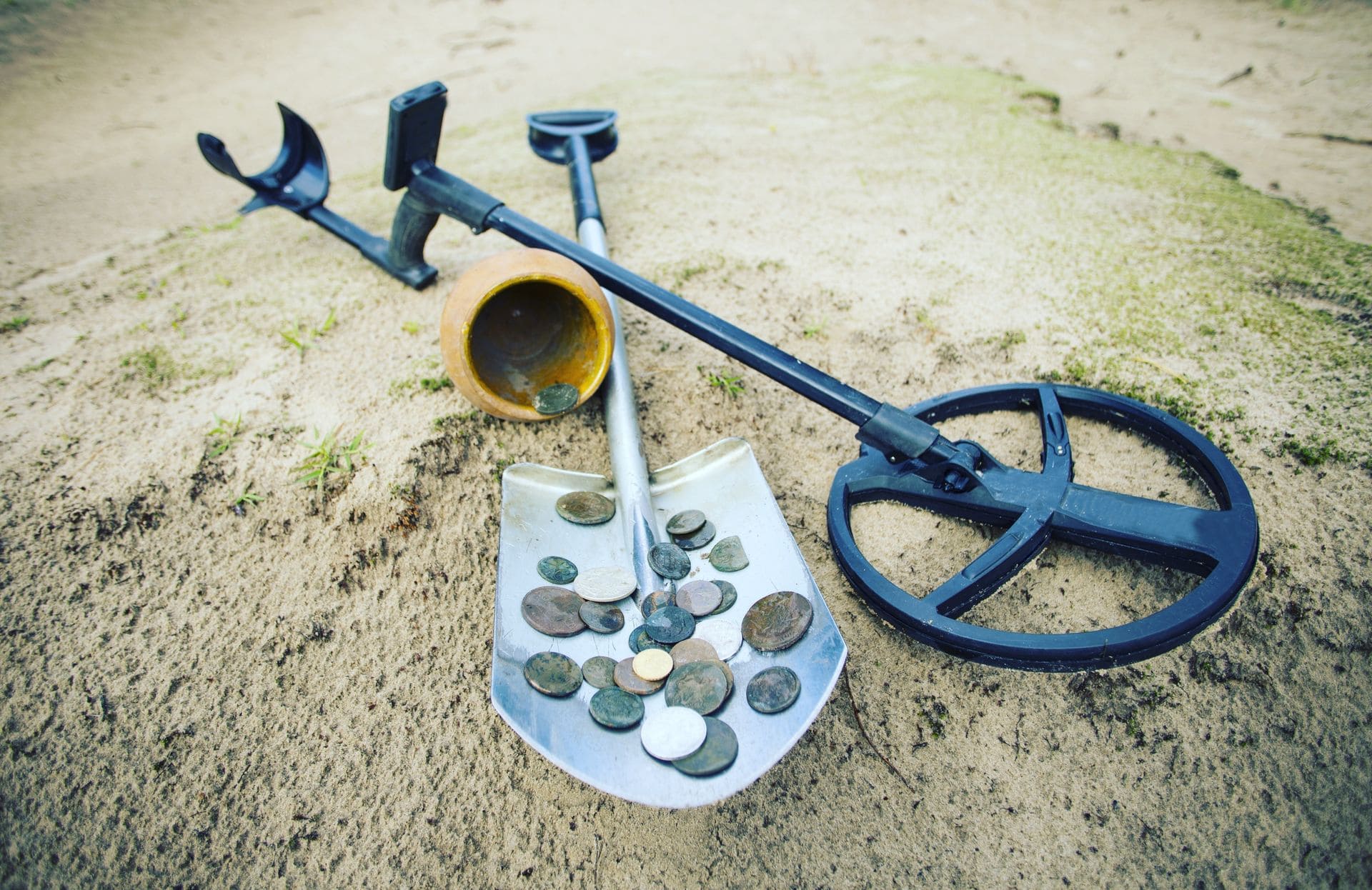
Searching beaches or battlefields for coins, jewellery, and other metal items is a popular pastime for both archaeologists and hobbyists alike. If you plan to join such a group, you will need to know which metal detector to buy. What should you look for when choosing a metal detector?
- How does a metal detector work?
- What parameters should your metal detector have?
- What should you pay attention to when choosing a metal detector?
- Waterproof metal detectors
- Which metal detector will be good for beginners?
- Which metal detector will be good for professional use?
- Which metal detector is best – summary
How does a metal detector work?
Which metal detector is best? In order to choose a model and evaluate its parameters, you should get to know the basics of how it works.
Metal detectors work by transmitting an electromagnetic field from the search coil into the ground This causes metal objects within the range of a metal detector to start generating their own electromagnetic field, which generates waves. These are then picked up by the coil, which lets you determine the location of metal objects hidden underground.
They usually consist of a handheld unit with a sensor probe which can be swept over the ground or other objects. They are designed in such a way as to let you move the sensor probes just above the ground without bending down. The equipment is usually operated with one hand, so armrests are often used for extra comfort. Metal detectors are powered by batteries and have control panels for calibrating the parameters and activating various functions.
What parameters should your metal detector have?
If you do not know which metal detector to choose, the best way to find the right equipment for your needs is to check its parameters. This will suggest whether a given detector will meet your expectations.
Metal detector frequency
One of the most important parameters is the frequency of the emitted electromagnetic waves, as it allows you to search for metal objects of specific sizes, located at specific depths.
So if you want to find gold coins, jewellery or bullet casings buried just below the surface of the earth, then a high-frequency metal detector will work best. Low-frequency models are better suited for larger items deeper underground, such as army helmets or even vehicle components.
You will come across both single-frequency and multi-frequency metal detectors on the market. The first type, as the name suggests, generates waves of one frequency, so they are suitable for searching for specific items. The second type, on the other hand, let you adjust this parameter, making them more universal.
Detection range
Which metal detector will be best? The detection range is an important aspect. This parameter determines whether the metal detector will be able to locate a metal object at a given depth.
In this case, the size of the item you are looking for is important. You may come across several values assigned to the range. For example, there are models for finding coins up to 25cm deep, military helmets up to 80cm, and larger objects up to 1.5m underground.
Metal detector working modes
Most modern metal detectors have one of two or both modes of operation – static and dynamic.
The static operating mode is based on the detector emitting a continuous sound when a metal object is detected. Its intensity changes as the coil approaches the object. More experienced users are able to determine from the sound what material they are dealing with, as this mode allows you to precisely determine both the location and depth of the object.
In dynamic mode, there is also a change in sound intensity as the coil gets closer to the metal. However, sound stops when the user stops. This method does not require precise calibration like the static mode, but it is also not as precise.
Discrimination in metal detecting
Discrimination in metal detecting is the action of omitting certain types of metal, such as stainless steel. This is a useful feature for people looking to find items made of specific types of metal. It can usually be set to one of 5 levels:
- level 0 – discrimination is disabled, so the detector searches for all types of metal,
- level 1 – the device does not detect iron elements,
- level 2 – the detector detects iron objects with low tones, and other objects with high tones,
- level 3 – some non-ferrous metals are omitted,
- level 4 – some non-ferrous metals defined by multi-stage marking with special markers are signalled.
What should you pay attention to when choosing a metal detector?
When looking for a good metal detector, in addition to the above-mentioned parameters, you should also consider other aspects that affect the convenience and efficiency of searching for metal objects.
One of the most important aspects is the weight of the metal detector. Due to the fact that the searching usually takes several hours and the detector is operated with one hand, you should try to find a detector that is relatively light. Otherwise you will end up getting tired very quickly. Additionally, it should have an armrest, which will help to keep the device in the right position with minimum effort.
Another aspect is the probe design. You will find many models of various shapes on the market, but pinpointing and circuit probes work best. They are distinguished by better detectability of metal objects than most other models.
The sound speaker also plays an important role in finding coins and other items efficiently. Many users prefer to listen if there is hidden treasure nearby than to keep looking at the display, so the generated sound should be of high quality. It is also worth checking if the metal detector has a headset input.
The control panel used to calibrate the detector and change the operating modes should be user-friendly. Control units with knobs with multiple options, e.g. for frequency setting, are best. Some models also have analogue or LCD displays showing the most important values.
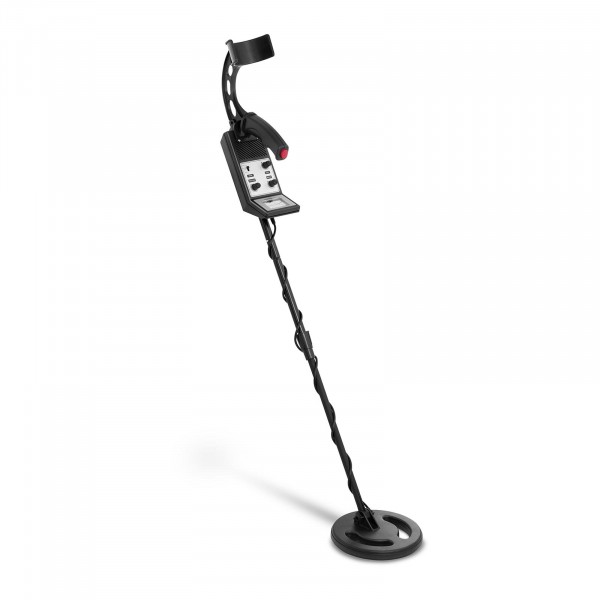 Professional Metal Detector – 200 cm / 25 cm – Ø 20.5 | 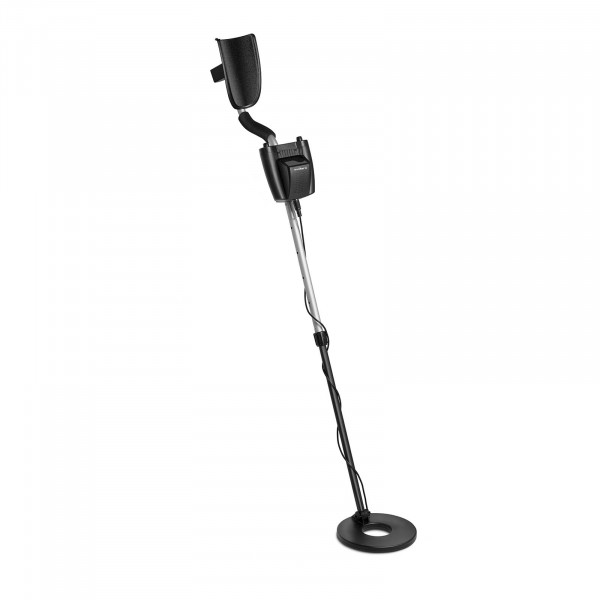 Metal Detector – 100 cm / 22 cm – Ø 21.5 cm | 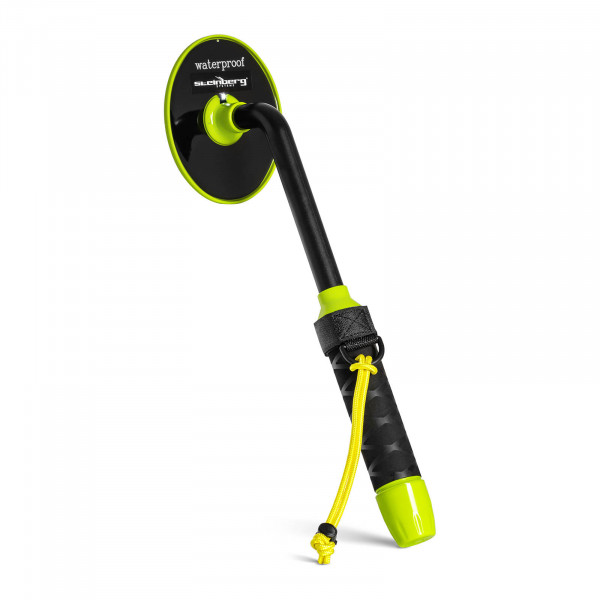 Handheld Metal Detector – 20 cm / 5 cm – waterproof to 30 m | |
| Diameter of the tube | 20,5 cm | 25 cm | 11 x 13 cm |
| Maximum tracking depth small objects | 25 cm | 22 cm | 5 cm |
| Maximum tracking depth large objects | 200 cm | 100 cm | 10 – 20 cm |
| Total length | 970-1130 mm | 124-145 cm | 47,80 cm |
| Operating frequency | 6,5-6,8 kHz | 6400-6800 Hz | 19,9-20,1 Hz |
| Headphone jack | 3,5 mm | 6,35 mm | – |
| Dimensions (LxWxH) | 20,00 x 20,00 x 103,00 cm | 145,00 x 21,50 x 23,00 cm | 44,50 x 11,50 x 9,50 cm |
| Battery | 6x AA | 2 x 9 V | 1 x 9 V |
Waterproof metal detectors
Waterproof metal detectors are very popular, and are designed so as to withstand high air humidity and even immersion in water. Therefore, before you start using your metal detector in the sea, a lake or a pond, make sure it is waterproof.
Which metal detector will be good for beginners?
Once you know the most important parameters and features, it’s time to decide which model will be good as your first metal detector?
As with most such equipment, it makes no sense to buy the most expensive models straight away, as they are equipped with many functions that you will certainly not use at the beginning. Hobbyists usually choose detectors that allow them to find specific items, such as coins or objects related to World War II.
Therefore, the best choice will be a single-frequency metal detector emitting waves assigned to a given type of objects. This increases the chance of finding exactly what you are looking for.
Handheld Metal Detector – 10 cm
Key information
- Audible, visual and vibrating signals that increase in intensity as you approach the object
- High sensitivity – the device detects objects up to a depth of 10 cm
- Fitted with a practical wrist strap
- For users of all ages and skill levels
- Low power consumption – powered by a 9V battery
Which metal detector will be good for professional use?
During archaeological excavations, researchers often have to dig through large areas to find anything at all. Depending on the historical period, it could be several centimetres or even several metres deep. In addition, they often come across scrap metal and rubbish left by local residents. Therefore, a good metal detector for use by archaeologists should let you change the range, frequency and level of discrimination.
Archaeological sites are not the only places where such detectors are used. They will also come in handy in the construction and renovation industry, where small metal detectors are used to find cables and pipes in walls and floors. This allows you to determine where you can screw or drill holes, so as not to damage electrical or other systems, so such equipment will be a good addition to any DIY workshop.
Which metal detector is best – summary
The answer to this question largely depends on how you intend to use it. If you plan to use it to look for old coins, then you should opt for a short-range model that emits high-frequency waves. On the other hand, if you are a WWII enthusiast, a detector that produces waves of lower frequencies will be better.

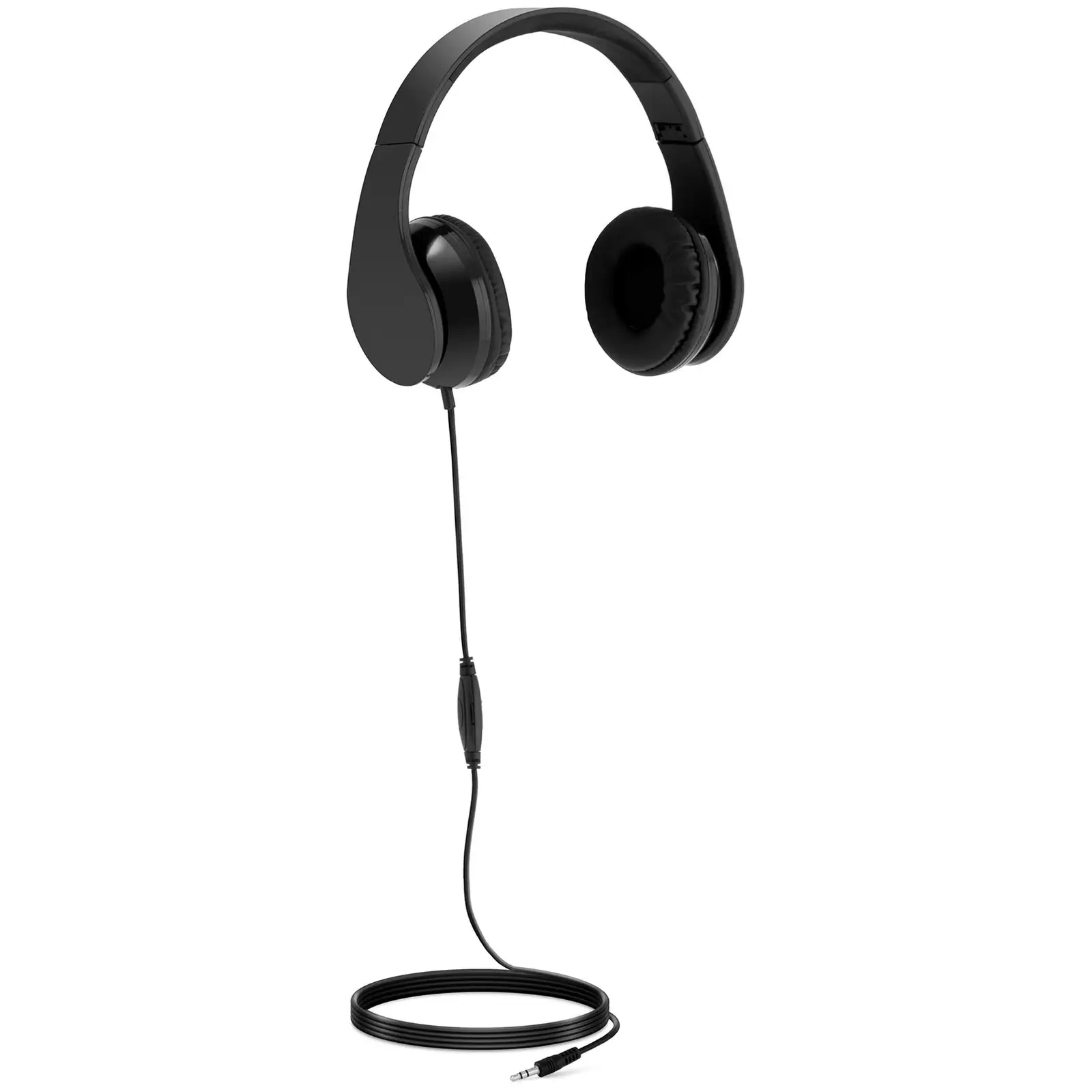
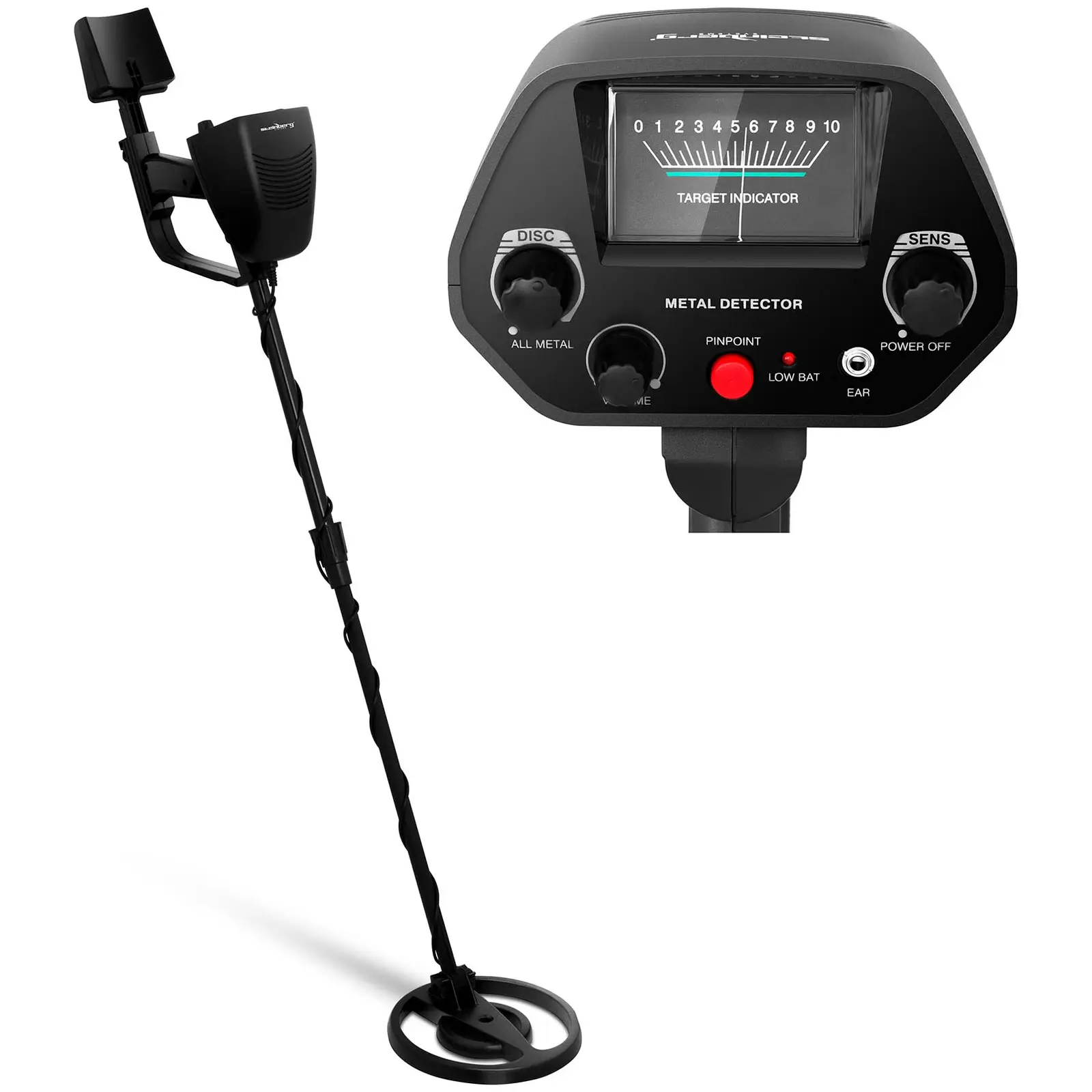
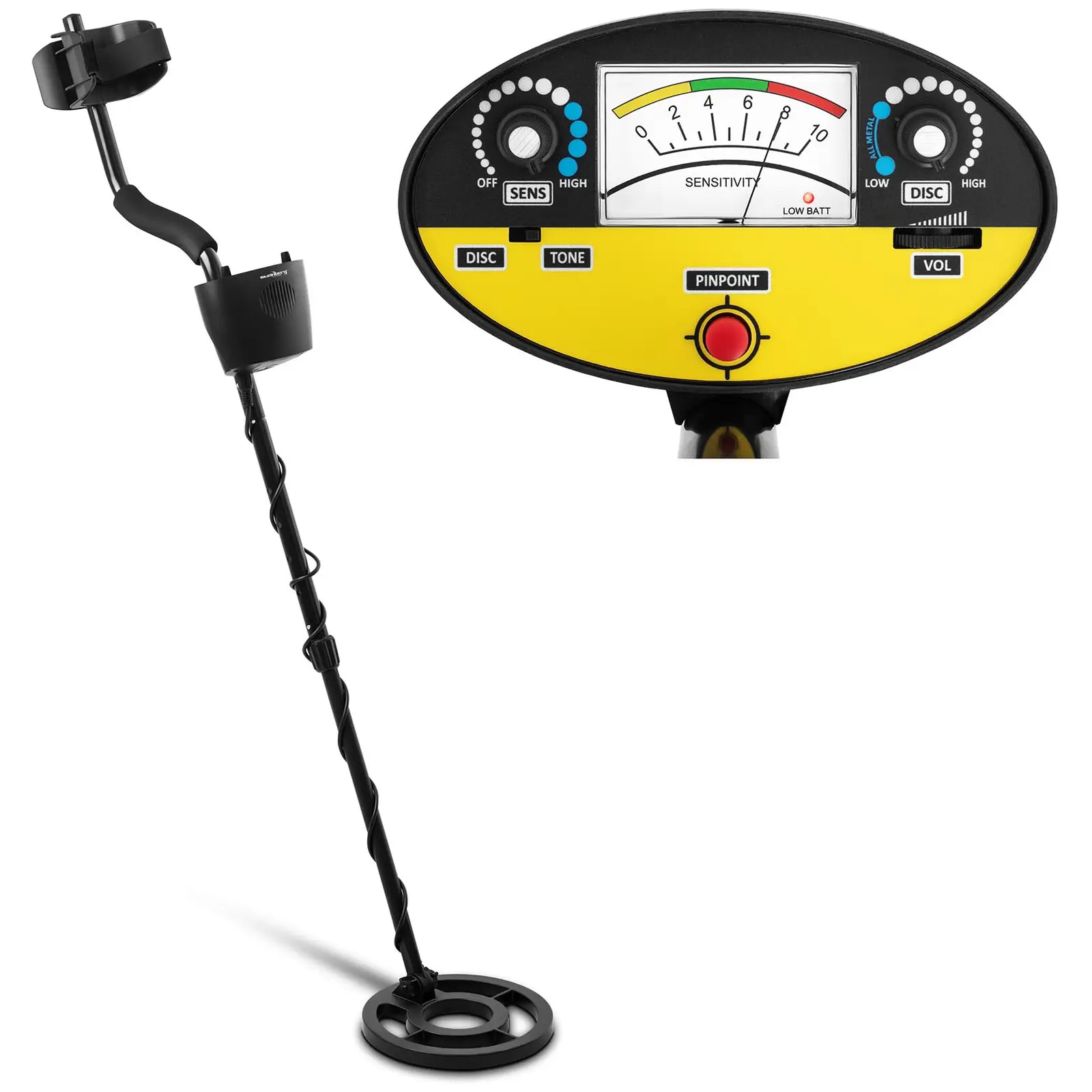
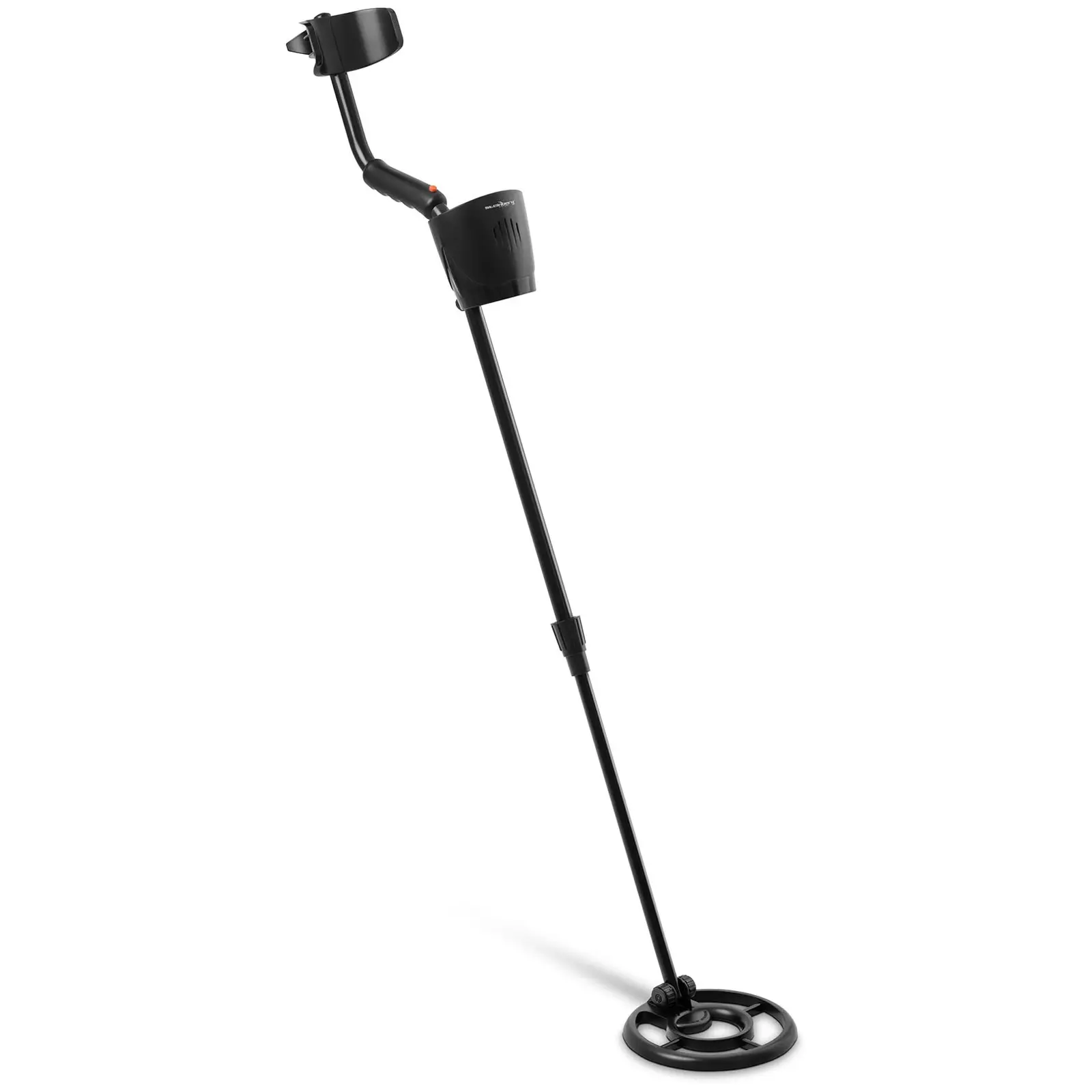
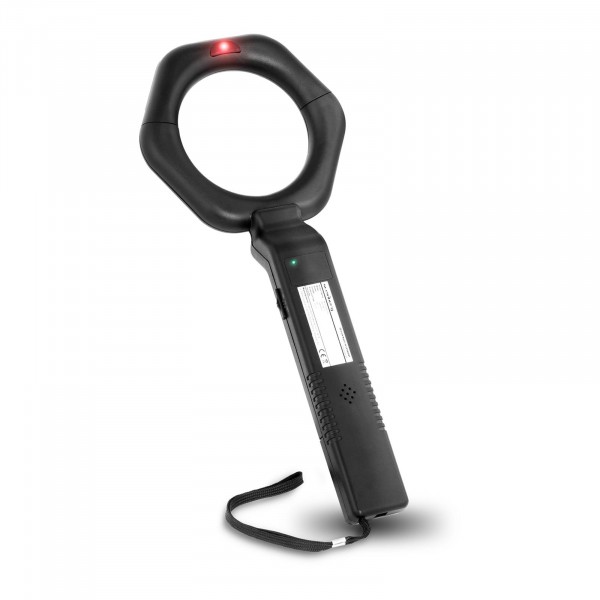
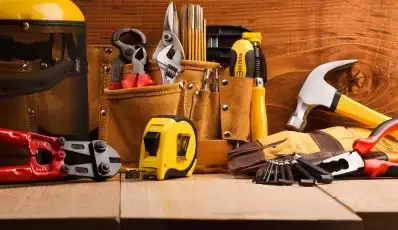



Share